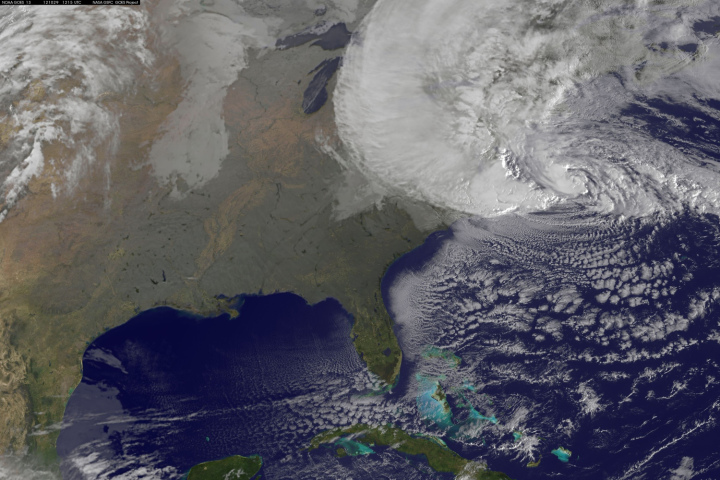
Intentional blindness that kills
MIAMI – The two greatest economic crises suffered by the United States in the last one hundred years – the Great Depression of the 1930s and the Great Recession/Slow Motion Recovery (2008-) – each have been accompanied by massive ecological disasters linked to human actions rooted in the kind of short-sighted thinking that we continue to engage in today.
A terrible drought and fierce winds were the immediate causes of the Dust Bowl that devastated the southern plains for a decade, triggering vast destitution and mass emigration, especially from states like Oklahoma and Texas. But drought and high winds have always been common in this area of the country. What made the Dust Bowl a colossal ecological and human tragedy was the large-scale conversion of a huge area from grassland to agriculture. Nobody apparently thought that the seemingly economically unproductive grasses, which were destroyed by deep plowing to be replaced by wheat and other cash crops, served a key ecological function. They retained moisture and prevented the topsoil from being blown away. That’s exactly what happened when a big drought struck in the 1930s, turning a vast area of the American heartland literally to dust.
This week, as we commemorate the one-year anniversary of Super Storm Sandy, which wrought havoc in the most densely populated and economically important place in the country, from the Jersey Shore to the heart of New York City and far beyond, we don’t have the excuse of ignorance.
For decades now, scientists, environmentalists, and plain old citizens with enough common sense to know than when the glaciers and polar ice caps are melting the Earth must be warming and the seas rising, have warned us that bad things would happen. Now they are happening. A storm that was only a Category 2 when it hit the northeast virtually paralyzed the Big Apple. What would have happened if a Category 5 had hit? Picture Manhattan as a lake. And it’s just the beginning.
It’s impossible to apportion a percentage of the blame of any single event like Sandy to global climate change. But it takes a willful blindness to ignore all the data, the near-universal consensus of the world’s best scientists, and the fact that funny things are happening to the weather all over the country – worse droughts, floods, and fires – and all over the world.
Not all the changes are spectacular as a hurricane, but they are real and all point in the same direction. A few years ago, for instance, some scientists began to refer to the state of Virginia as “the new North Carolina” as species of plants and animals not previously able to survive the colder Virginia climate are now thriving there.

Look for the money is usually the best strategy when people systematically and vehemently deny or obfuscate cold hard scientific findings. The fossil fuels industry is breathtakingly rich and has an enormous stake in maintaining the status quo as long as possible. It has used its resources to fund fake science and think tanks that try to keep alive the fallacy that there still is a scientific debate over global climate change and its causes.
These tactics are not new. For decades, the tobacco industry successfully used every ploy and subterfuge imaginable to deny the link between cigarettes and cancer, from intimidation to buying politicians to a vast conspiracy of lies. Big tobacco eventually had to give up the argument but it continued such tricks as marketing to young people and manipulating nicotine levels to make it harder for veteran smokers to overcome their addiction. More importantly, free trade opened up vast new markets that more than made up for the reduction of smoking rates in the United States. The tobacco industry played for time and survived to live not for just another day but for decades in which to drive tens of millions of people around the world to an early grave.
The fossil fuels industry would like to pull off a similar trick. If they do, coastal Florida will be among the worst hit areas. If the most drastic sea level rise projected takes place a significant part of the state would be under water. Recently, a group of concerned citizens met in Miami to discuss what can be done to adapt to rising sea levels.
It’s a good move but the solution for global climate change is necessarily, well, global. And the prospects for effective global action right now appear dismal. The United States, the self-described indispensable nation and the biggest emitter of greenhouse gases per capita by far, should lead the fight. But a major problem is that dealing with global climate change requires a significant increase in global governance at a time when the Republican Party, which has veto power over almost everything, wants to continuously shrink even the national government and is hostile to virtually all international agreements. The most extreme wing of the GOP is even willing to bring financial ruin to the national and global economies in order to shrink most of the federal government to near irrelevance.
Thus, as time runs out to save the planet as we know it, the political trends in the United States – including the increased role of big money in politics – are running in the opposite direction of what is required for the rescue operation. Powerful economic interests and political myopia are carrying the day. And, unlike the Dust Bowl, what is at stake this time is not the fate of one region in one country but the future of life on Earth.

